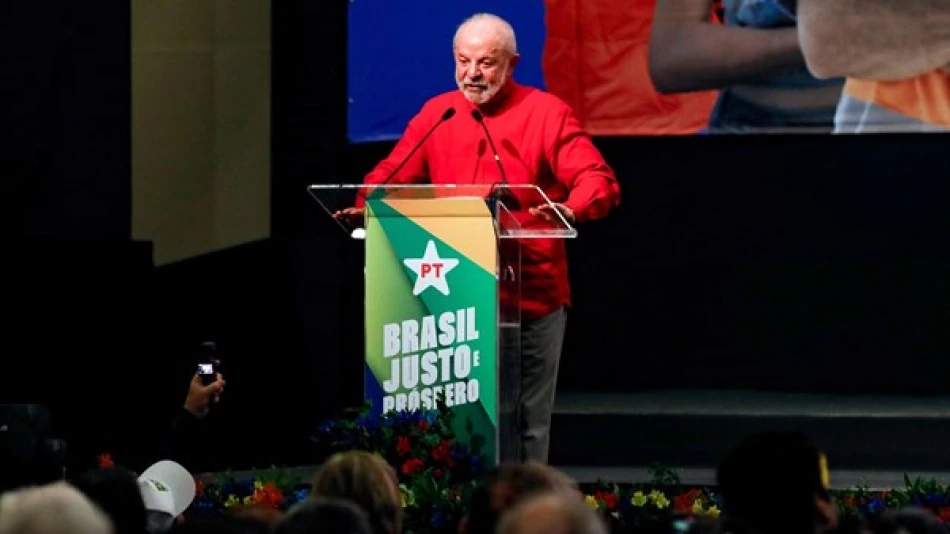
Brazil's President Ready for Trade Talks with America
Brazil Sets Conditions for Trump Trade Talks as Tariff Standoff Intensifies
Brazilian President Luiz Inácio Lula da Silva has signaled his country's willingness to engage in trade negotiations with Donald Trump, but only under terms of equal partnership—a stance that could determine whether Latin America's largest economy becomes a casualty or beneficiary of the new U.S. administration's aggressive trade agenda.
Lula Demands Equal Footing in Trade Relations
Speaking at a Workers' Party event in Brasília on Sunday, Lula made clear that Brazil would not accept a subordinate position in any trade discussions. "We want to negotiate. But we want to negotiate on equal terms," the leftist leader declared, emphasizing his government's commitment to protecting Brazilian companies and workers.
The Brazilian president's measured but firm response comes as Trump has imposed a punishing 50% tariff on Brazilian goods, part of his broader strategy to reshape global trade relationships through economic pressure. Lula's insistence on "equal footing" reflects Brazil's growing confidence as a regional power and major commodity exporter.
Strategic Delay Provides Breathing Room
The United States postponed implementation of the tariffs last week, pushing back the August 1 deadline while exempting numerous products from the punitive measures. This tactical retreat suggests the Trump administration recognizes the potential economic fallout from escalating tensions with Brazil, which ranks among America's top trading partners in Latin America.
The delay creates valuable negotiating space for both sides. For Brazil, it provides time to coordinate with other regional economies and strengthen its bargaining position. For the U.S., it offers an opportunity to secure concessions without triggering immediate retaliation that could harm American exporters and consumers.
Market Implications and Investor Concerns
The tariff threat has already sent ripples through commodity markets, where Brazilian exports of soybeans, iron ore, and coffee play crucial roles in global supply chains. A prolonged trade dispute could reshape agricultural and mining investment flows, potentially benefiting competitors like Argentina in agriculture or Australia in mining.
Brazilian Finance Minister Fernando Haddad's upcoming discussions with U.S. Treasury Secretary Scott Bessent will be closely watched by investors seeking clarity on trade policy direction. Currency markets have shown particular sensitivity to developments, with the Brazilian real's performance tied to trade relationship stability.
Regional Power Dynamics at Play
Brazil's approach contrasts sharply with smaller Latin American economies that have historically accepted asymmetrical trade relationships with the United States. Lula's demand for equal treatment reflects Brazil's evolution into a middle power with significant leverage through its vast natural resources and growing industrial base.
This stance aligns with Brazil's broader foreign policy of maintaining strategic autonomy while engaging pragmatically with major powers. Unlike previous decades when Latin American countries had limited options, Brazil now has alternative partners in China and the European Union, strengthening its negotiating position.
Path Forward Remains Uncertain
Trump's Friday comment that Lula "can call him" suggests potential flexibility in the U.S. position, which Brazilian officials have welcomed as progress. However, the fundamental tension between Trump's transactional approach and Lula's insistence on equal partnership will likely define the success or failure of any negotiations.
The outcome will set important precedents for U.S. trade relationships across Latin America and could influence how other emerging economies respond to American economic pressure. Brazil's ability to maintain its principled stance while avoiding economic damage will be a critical test of its diplomatic and economic maturity.
Most Viewed News

 Layla Al Mansoori
Layla Al Mansoori






